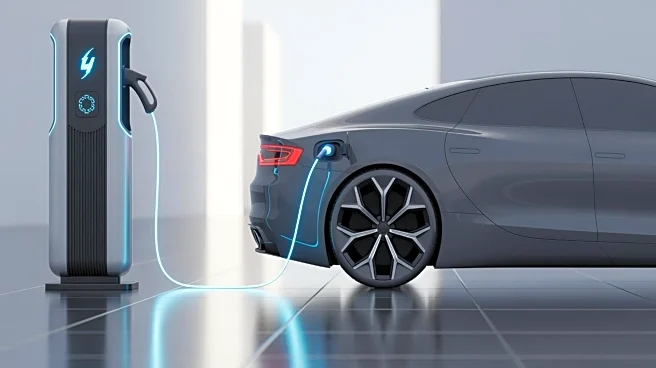What's Happening?
Electric vehicles (EVs) have achieved a 33.3% market share in Germany, marking a significant increase from 23.6% year-on-year. Battery electric vehicles (BEVs) accounted for 21.0% of the share, while plug-in hybrids (PHEVs) made up 12.4%. The Skoda Elroq
emerged as the best-selling BEV in October, with 3,320 units sold. The German government is considering reintroducing BEV purchase incentives in January 2026, targeting lower-income households with a vehicle MSRP ceiling of €45,000. The incentive could be up to €4,000 per vehicle, with a total funding pot of €3.5 billion.
Why It's Important?
The growth in EV market share in Germany reflects a broader shift towards sustainable transportation. The potential reintroduction of purchase incentives could further accelerate this transition, making EVs more accessible to lower-income households. This move is crucial for reducing carbon emissions and promoting environmental sustainability. However, the focus on benefiting European manufacturers may impact global competitiveness, as it could lead to complacency among legacy auto companies. The incentives could also influence consumer purchasing behavior, potentially boosting sales in the first half of 2026.
What's Next?
If the new BEV incentives are implemented, there may be a temporary slowdown in purchases in December, followed by a surge in sales in early 2026. The German government will need to balance the incentives to ensure they effectively promote EV adoption without disproportionately benefiting certain manufacturers. The automotive industry will likely continue to innovate and adapt to meet the growing demand for EVs, potentially leading to new models and technologies.















